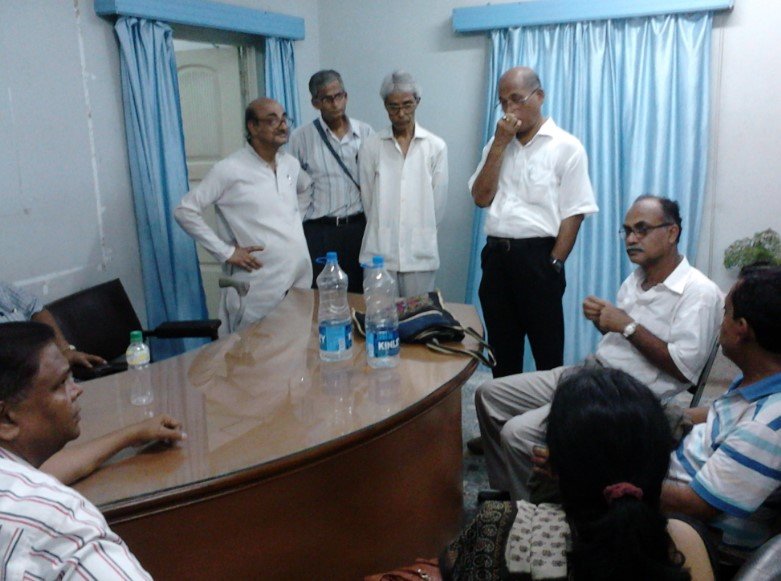Georgia lawmakers gathered last week in Atlanta for a key hearing to tackle expected federal funding cuts to the state’s public health system. Facing potential freezes or reductions under the Trump administration, officials aim to redesign services that guard against diseases and provide preventive care, while dealing with an already tight budget that relies heavily on federal dollars.
Hearing Highlights Push for System Overhaul
State leaders expressed both hope and worry during the Wednesday session. Dr. Kathleen Toomey, the state’s public health commissioner, called the changes a chance to rethink how Georgia delivers health services like tracking syphilis outbreaks and offering dental hygiene programs.
Lawmakers heard that block grants from the federal level could mean more state control but less money overall. This shift might force tough choices on which programs to keep.
Rep. Butch Parrish, a Republican from Swainsboro, stressed that Georgia cannot fully replace lost federal funds. He urged Toomey to rank essential services to guide state spending if cuts hit hard.
The hearing also spotlighted rural-urban gaps. Panel members noted that small towns often get fewer health resources than cities like Atlanta, raising fears that cuts could widen this divide.

Budget Breakdown Shows Heavy Federal Reliance
Georgia’s public health budget totals $922.5 million this year. State funds cover about $403 million, while federal sources provide nearly $465 million, making up over half the total.
Local counties pitch in too, but their required contributions have stayed the same for 50 years. This outdated setup leaves the system vulnerable as costs rise for staff and programs.
Here’s a quick look at the funding split:
| Source | Amount (in millions) | Percentage of Total |
|---|---|---|
| State | $403 | 44% |
| Federal | $465 | 50% |
| Local/Other | $54.5 | 6% |
This table shows why federal changes matter so much. A freeze could strain state coffers right away.
Experts warn of a possible government shutdown on October 1 if Congress fails to pass a budget. Such a halt would pause federal payments, pushing more costs to Georgia and testing its underfunded setup.
Potential Impacts on Services and Communities
Cuts could lead to reduced services in disease prevention and family health programs. Rural areas, already short on clinics, might face the biggest hits, with longer waits for care or program closures.
For example, tracking infectious diseases like recent syphilis spikes relies on federal grants. Without them, state officials say response times could slow, putting more people at risk.
On the flip side, some see block grants as a way to tailor programs to Georgia’s needs, like boosting mental health support in underserved spots.
Still, the House resolution creating the study committee called public health “historically underfunded.” This label underscores long-term issues that predate current federal threats.
Lawmakers plan two more hearings this year to dig deeper. Rep. Darlene Taylor, who leads the group, said they will watch Congress closely for final budget decisions.
Broader Context of Federal Shifts
The Trump administration’s push for funding changes ties into larger budget talks. Proposed cuts aim to trim federal spending, but critics argue they shift burdens to states without enough support.
In Georgia, this comes amid other health challenges. Recent reports show over 300,000 residents could lose Medicaid coverage due to related federal trims, adding pressure on public health networks.
Nationwide, groups like the Association of State and Territorial Health Officials predict widespread effects. They point to a high risk of funding freezes that could echo past shutdowns.
Georgia’s moves reflect a trend in red states to adapt by redesigning systems for efficiency. Yet, experts caution that without new state revenue, service quality might drop.
Challenges Ahead for Rural Health Care
Rural Georgia already struggles with hospital closures. At least 45 facilities in 35 counties face risks from broader health funding squeezes, per recent analyses.
Key concerns include:
-
-
- Slower emergency responses in remote areas.
- Reduced access to preventive screenings for diseases like cancer.
- Strain on local health workers, many employed by counties.
-
These issues highlight why lawmakers want a redesign that prioritizes high-need spots. But finding the money remains the big hurdle.
Parrish noted the state can help some but not all. This reality check sets the stage for tough budget talks in the coming months.
What This Means for Georgians
For everyday residents, these changes could mean rethinking how to get basic health services. Urban areas might cope better, but rural families could travel farther for care.
State officials urge people to stay informed as redesign plans unfold. The goal is a stronger system, but success depends on balancing cuts with smart investments.
As Georgia navigates this, share your thoughts on how funding cuts might affect your community. Comment below or spread the word to keep the conversation going.
